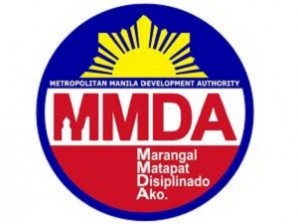
Metropolitan Manila Development Authority (MMDA) Chair Francis Tolentino announced on Sunday that the agency, together with the bus and jeepney operators, will launch the e-tagging in a ceremony on Nov 8.
“It’s ready to roll,” Tolentino said in the MMDA’s weekly radio program. The e-tagging project was designed to help authorities intercept the so-called colorum or unregistered vehicles plying major thoroughfares, particularly buses, through the radio frequency identification devices (RFIDs) installed in them.
Mila Silvestre, head of the MMDA’s organized bus route program, explained in a Philippine Daily Inquirer interview that the kickoff event is not yet the start of the project’s metrowide implementation.
“It’s a signal that e-tagging is now in the works,” Silvestre said.
According to Silvestre, the MMDA officials in the ceremonial launch would showcase how the e-tagging works by taking two city buses and two jeepneys as samples.
On that day, the MMDA will also present to the bus and jeepney operators the project’s working guidelines.
“It might take us at least two months more before we could fully implement the project,” Silvestre said noting that the agency has yet to acquire the fixed and handheld RFID readers—the devices needed to detect the e-tag on the PUVs.
Transport groups and bus and jeepney had proposed this systematic tagging of vehicles as an alternative to the paint tagging scheme, an earlier project of the MMDA to mark paint tags on top of jeepneys and city buses for monitoring.
They volunteered to shoulder the costs so the MMDA need not to spend a single centavo.
The launch of the e-tagging came four months after the officials of both the MMDA and the LTFRB had signed a joint statement, agreeing to cooperate in implementing the project.
The technical working group from the MMDA and the Department of Science and Technology had also tested the e-tagging gadgets.
Last month, however, the United Transport Coalition (1-Utak) party-list earlier criticized the delay in the implementation of the project, claiming the LTFRB had let the two-year-old proposal to drag on.
But Silvestre clarified that the MMDA does not need the LTFRB’s memorandum circular to implement the project.
“But the (LTFRB’s) memo would be of help the MMDA enforce the e-tagging since LTFRB has the power to set the electronic tags on buses as a requirement for the processing of bus franchises,” she said.
She added that “inter-agency cooperation would always matter” for this kind of project.
The 1Utak party-list expressed optimism that the project would be a great opportunity to improve both the PUV drivers’ income and the traffic situation in the metropolis.
“Once this is already in place, the income of drivers will increase by P200 per day. Soon enough, we also get to reduce the number of colorum vehicles congesting the roads,” Vigor Mendoza, legal counsel for 1Utak, said.
Mendoza noted that the e-tag per vehicle, which costs P480 to P1000, will speed up the detection and apprehension of erring PUV drivers.
The first batch of fixed readers installed on concrete poles and the handheld readers for the traffic aides will be purchased by 1Utak party-list through its Priority Development Assistance Fund, Mendoza said.